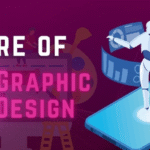Germany has long been known for its precision, innovation, and knack for engineering brilliance. From small gadgets that make life easier to groundbreaking technologies that have transformed the world, German inventors have left an indelible mark on human progress. Whether it’s the automobile, printing press, or even aspirin, Germany’s legacy in innovation is undeniable. If you’re curious about history, science, or technology, learning about these inventions is both fascinating and inspiring.
Before we dive into these innovations, let’s take a moment to talk about how learning new languages can open doors to understanding these historical contexts better. For instance, enrolling in a German Language Course in Chennai can help you read original patents, documents, and historical texts, giving you firsthand insight into these inventions. Understanding the language can also enhance your appreciation for Germany’s rich engineering culture.
1. The Printing Press – Johannes Gutenberg
No discussion of German inventions would be complete without the printing press, invented by Johannes Gutenberg in the 15th century. This revolutionary invention made mass communication possible and dramatically altered the course of human history. Prior to Gutenberg, books had to be meticulously handwritten, limiting access to knowledge to the elite. With the printing press, ideas, science, and literature could spread quickly, igniting the Renaissance and the Enlightenment.
Interestingly, Gutenberg’s invention laid the foundation for modern education and literacy. Imagine trying to study without printed books today it’s nearly impossible. The printing press is a classic example of how German ingenuity has shaped the world.
2. The Automobile – Karl Benz
When you think about cars, Germany is a name that instantly comes to mind. Karl Benz, in 1886, invented the first practical automobile powered by an internal combustion engine. This was more than just a new mode of transport; it was a revolutionary concept that transformed society. The automobile changed how cities were built, how commerce functioned, and even how vacations were taken.
Germany continues to lead in automotive engineering, with brands like BMW, Mercedes-Benz, and Volkswagen carrying forward Benz’s legacy. And while we admire these technological feats, it’s worth noting that understanding German can help you better navigate technical manuals and historical engineering documents yet another reason why FITA Academy encourages aspiring learners to explore the German language.
3. Aspirin – Felix Hoffmann
Who doesn’t love a quick fix for a headache? Aspirin, one of the most widely used medicines in the world, was developed by German chemist Felix Hoffmann at Bayer in 1897. This seemingly simple invention revolutionized pain relief and laid the groundwork for modern pharmaceuticals. Today, aspirin is not just a household medicine; it’s used to prevent heart attacks and manage a variety of health conditions.
It’s amazing how a single invention can have such far-reaching impact on daily life. Germany’s dedication to chemistry and pharmaceutical research has been a model for other countries, demonstrating the importance of precision, experimentation, and innovation.
4. The Diesel Engine – Rudolf Diesel
Rudolf Diesel’s creation of the diesel engine in 1897 revolutionized industrial transportation. Diesel engines, known for their higher fuel efficiency compared to gasoline engines, are commonly used in trucks, ships, and trains. This invention not only improved transport efficiency but also had significant environmental and economic implications.
Imagine a world without diesel engines shipping goods globally would be slower and more expensive, affecting international trade as we know it. Rudolf Diesel’s work is a testament to how a single German innovation can ripple across multiple industries and shape modern life.
5. The X-Ray – Wilhelm Conrad Roentgen
In 1895, Wilhelm Conrad Roentgen’s discovery of X-rays revolutionized the field of medicine. For the first time, doctors could see inside the human body without surgery, paving the way for modern diagnostics. Today, X-rays are standard in hospitals around the world, saving countless lives each year.
Roentgen’s discovery exemplifies the marriage of scientific curiosity and practical application a hallmark of German inventiveness. If you are interested in the medical field or want to study German medical texts, attending Language Classes in Chennai that focus on German could be a great way to access this rich knowledge directly.
6. Modern Rocketry – Wernher von Braun
German engineer Wernher von Braun played a pivotal role in developing modern rocketry, which eventually led to space exploration. From the V-2 rockets during World War II to the Saturn V that took humans to the Moon, von Braun’s contributions were critical. His work laid the foundation for modern astronautics and satellite technology, impacting everything from GPS systems to space tourism.
German precision and engineering discipline are evident in rocketry. Learning about such innovations becomes even more interesting when you can access original German resources another reason why Spoken English Classes in Chennai and multilingual programs can enhance your learning experience.
Germany’s legacy of invention is truly inspiring. German inventors have continually shaped the world, from the printing press that made knowledge accessible to all, to aspirin that provided global relief, from cars that revolutionized transportation to X-rays that transformed medical diagnostics. These innovations not only highlight Germany’s engineering genius but also remind us how curiosity, creativity, and persistence can shape humanity’s future.
For those seeking to expand their global skills, IELTS Coaching in Chennai can unlock international opportunities in education, employment, and research. Germany’s inventions are more than just historical achievements; they’re lessons in creativity, problem-solving, and the human spirit. And who knows? The next revolutionary idea might just come from you!


